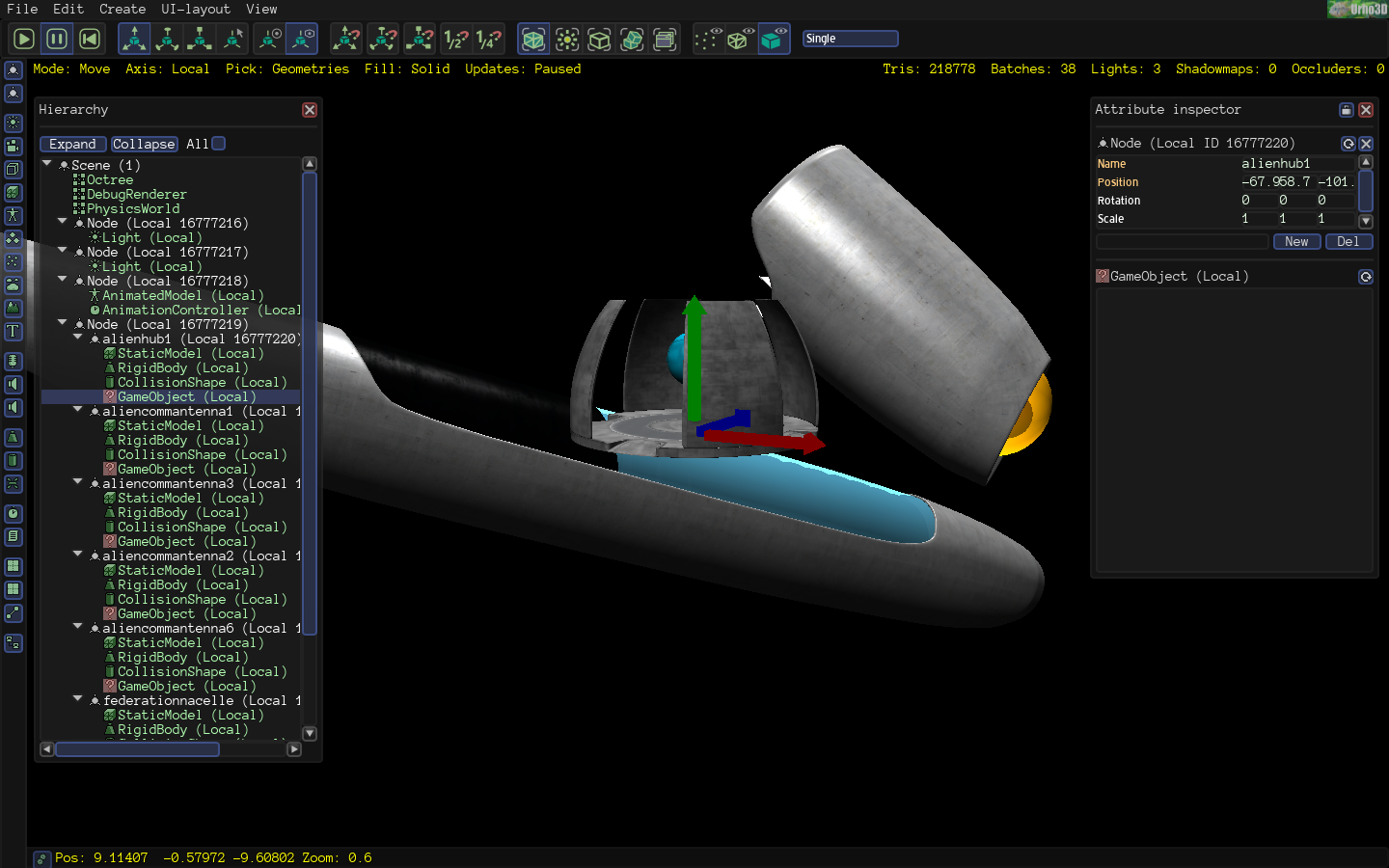Hello
Which file to load?
I think I can now build individiual editor without messing with urho3dplayer? Not “Editor.as”
Vivienne
[quote=“vivienneanthony”][quote=“cadaver”]There’s still the problem of registering your components before running, which I don’t think is possible without modifying Urho3DPlayer code. You could go that route, but it’s probably easier and more future-proof making a mode in your application which is able to behave like Urho3DPlayer when it’s running the editor. For example when there’s a command line switch “–editor” or similar.
Ther’s nothing “magic” in what Urho3DPlayer does, you’ll only need to:
- Register your components
- Instantiate the Script subsystem
- Load the editor script and run its Start() function
- Run Urho engine loop until exited[/quote]
[code]#
Copyright © 2008-2015 the Urho3D project.
Permission is hereby granted, free of charge, to any person obtaining a copy
of this software and associated documentation files (the “Software”), to deal
in the Software without restriction, including without limitation the rights
to use, copy, modify, merge, publish, distribute, sublicense, and/or sell
copies of the Software, and to permit persons to whom the Software is
furnished to do so, subject to the following conditions:
The above copyright notice and this permission notice shall be included in
all copies or substantial portions of the Software.
THE SOFTWARE IS PROVIDED “AS IS”, WITHOUT WARRANTY OF ANY KIND, EXPRESS OR
IMPLIED, INCLUDING BUT NOT LIMITED TO THE WARRANTIES OF MERCHANTABILITY,
FITNESS FOR A PARTICULAR PURPOSE AND NONINFRINGEMENT. IN NO EVENT SHALL THE
AUTHORS OR COPYRIGHT HOLDERS BE LIABLE FOR ANY CLAIM, DAMAGES OR OTHER
LIABILITY, WHETHER IN AN ACTION OF CONTRACT, TORT OR OTHERWISE, ARISING FROM,
OUT OF OR IN CONNECTION WITH THE SOFTWARE OR THE USE OR OTHER DEALINGS IN
THE SOFTWARE.
Define target name
set (TARGET_NAME Urho3DPlayer)
Find Urho3D library
find_package (Urho3D REQUIRED)
include_directories (${URHO3D_INCLUDE_DIRS})
Define source files
define_source_files ()
#ddd more file
FILE(GLOB Character ${CMAKE_SOURCE_DIR}/Source/ExistenceApps/ExistenceClient/Character.cpp)
FILE(GLOB GameObject ${CMAKE_SOURCE_DIR}/Source/ExistenceApps/ExistenceClient/GameObject.cpp)
FILE(GLOB InteractObject ${CMAKE_SOURCE_DIR}/Source/ExistenceApps/ExistenceClient/InteractObject.cpp)
Setup target with resource copying
setup_main_executable (NOBUNDLE)
Setup test cases
if (URHO3D_ANGELSCRIPT)
setup_test (NAME Editor OPTIONS Scripts/Editor.as -w)
setup_test (NAME NinjaSnowWar OPTIONS Scripts/NinjaSnowWar.as -w)
setup_test (NAME SpritesAS OPTIONS Scripts/03_Sprites.as -w)
endif ()
if (URHO3D_LUA)
setup_test (NAME SpritesLua OPTIONS LuaScripts/03_Sprites.lua -w)
endif ()
Symlink/copy helper shell scripts or batch files to invoke Urho3DPlayer
if (NOT IOS AND NOT ANDROID AND NOT EMSCRIPTEN)
# Ensure the output directory exist before creating the symlinks
file (MAKE_DIRECTORY ${CMAKE_BINARY_DIR}/bin)
foreach (FILE Editor NinjaSnowWar)
create_symlink (${CMAKE_SOURCE_DIR}/bin/${FILE}${SCRIPT_EXT} ${CMAKE_BINARY_DIR}/bin/${FILE}${SCRIPT_EXT} FALLBACK_TO_COPY)
endforeach ()
endif ()[/code][/quote]


